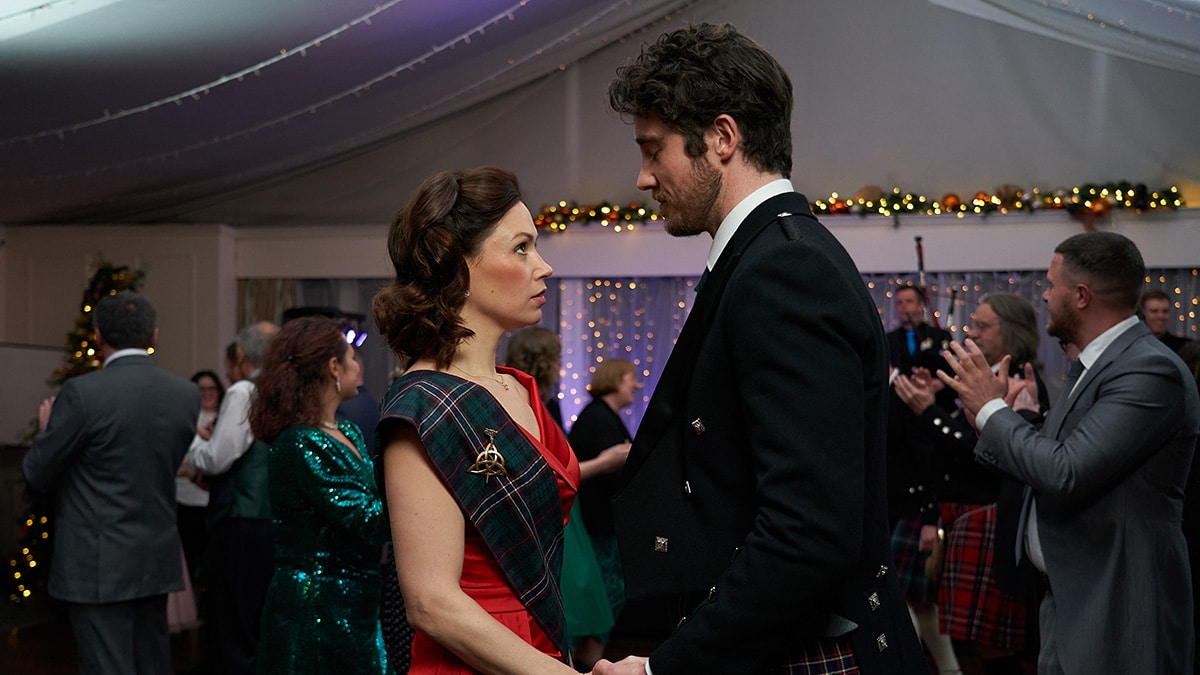Entertainment
Taylor Swift inspires Glasgow student to pursue copyright law
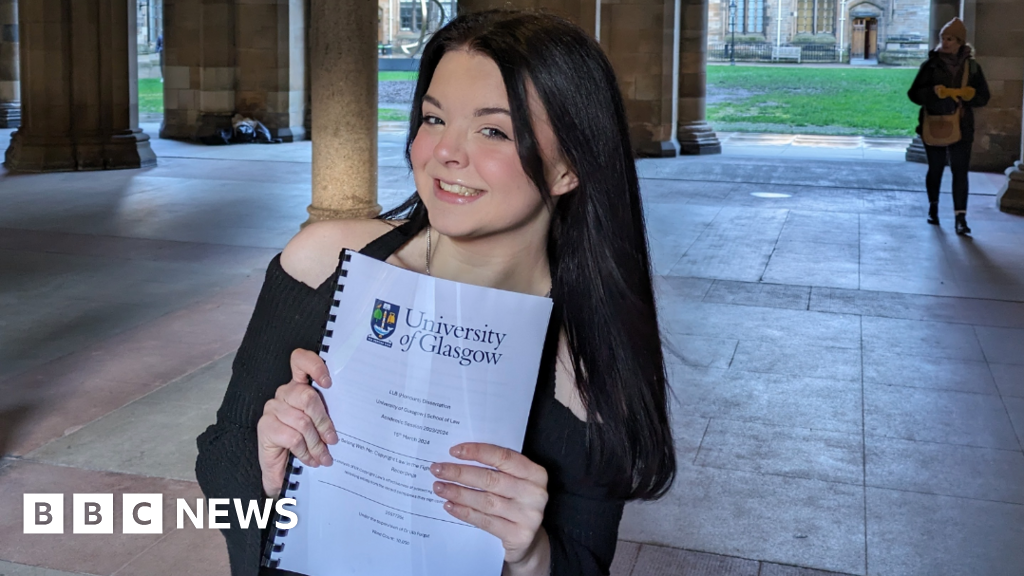
By Jamie Russell, BBC Scotland News
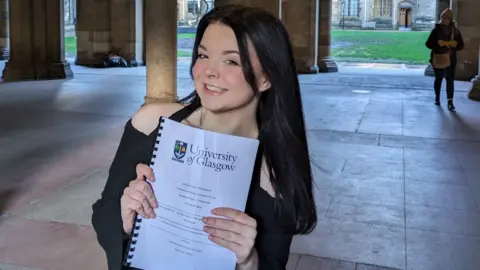 Regan Caie
Regan CaieWhile Taylor Swift was on her record-breaking Eras Tour, one Swiftie was using the star’s music in a bid to pass her law degree.
Regan Caie, a law student at the University of Glasgow, wrote her fourth-year dissertation about Swift’s re-recorded albums and copyright law.
The music star has re-recorded and re-released four of her first six albums over a copyright dispute with producer and artist manager Scooter Braun.
Regan, 21, said her dissertation combined her love of Swift’s music with her ambition to eventually specialise in copyright and intellectual property law.
In the past year, Taylor Swift has dominated headlines on her Eras Tour – the highest-grossing concert tour of all time.
Now the star is bound for the home of Scottish rugby, Murrayfield Stadium, with over 200,000 Swifties set to flock to Edinburgh for three shows from 7-9 June.
Regan has tickets for the tour and joked that people won’t stop telling her to bring her dissertation with her.
“I actually can’t wait, I’m so excited,” she said, “We’re already planning our outfits.”
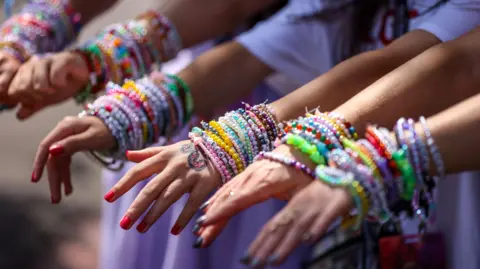 Getty Images
Getty ImagesRegan, who’s originally from Auchterarder, Perthshire, said Swift’s music was the “soundtrack of my life”.
Since 2021, the US superstar has been re-releasing her old albums, after a deal she signed when she was just 15 years old gave ownership of her master recordings to her record label.
“I’ll explain it how I explain it to my mum,” says Regan.
“Taylor lost the rights to her music because the company that she had worked under was sold completely,” she said.
Swift tried to buy them back, but was outbid, according to Regan.
“She knew she’d never get the recordings back so she decided to re-record her music on her own terms.”
Regan added that it was personal for Swift because the star had problems with Braun, who initially bought the rights.
Now Swift’s re-recorded songs and albums are marked with “(Taylor’s Version)” to show that she owns them.
The “Taylor’s Version” tracks come with refreshed vocals, instrumentation, new cover art and even some tracks “From The Vault” of her song library.
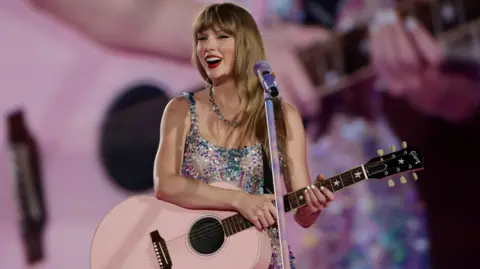 Getty Images
Getty ImagesDespite Regan being a massive lover of Swift’s music, it was actually her lecturer who first planted the idea for the dissertation.
“They mentioned that it would be funny if someone wrote about Taylor, and I just thought ‘Ok, bet!’,” Regan said.
Regan then spent nine months studying the subject while listening to her favourite Taylor tracks because “technically, it was research”.
The completed dissertation was submitted in March. It was 10,000 words long and citied more than 150 sources.
Regan said her writing style included plenty of references to Swift to make the writing process “more bearable”.
Regan will get her final result on 11 June, two days after Swift’s last Edinburgh gig.
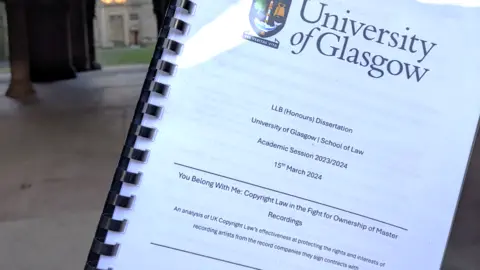 Regan Caie
Regan CaieDuring Regan’s research, she found that Swift’s success with her re-recordings had led to some bad blood in the industry.
Contracts which prohibit re-recordings are nothing new, Regan said.
But what is different now is labels are “tightening up” contracts by extending the amount of time that must pass before musicians can re-record their songs, she said.
Previously contracts specified about five years before artists could re-record but in some cases it is now 20 years, Regan said.
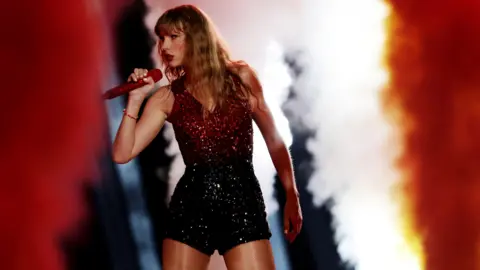 Getty Images
Getty ImagesSo far, Swift has re-recorded four of her six “stolen” albums.
Some of Swift’s fans are fighting an online battle to make sure people do not stream the original version of a track if a “Taylor’s Version” exists.
Regan said she agreed with that sentiment but “would never force or shame anyone for listening to older versions”.
“It comes down to nostalgia,” she said.
However, Swift was recently reported to have become a billionaire. So what difference does a few streams on Spotify or Apple Music make?
Regan said, for her as a fan, it comes to an “ethical perspective”.
“A lot of female artists came forward after Swift struggled to own her re-recordings,” she said.
“If someone has worked on something and created something, then they have a right to earn from that.”
So, can you become a lawyer by listening to Taylor Swift? Time will tell.
Regan recently secured a traineeship at law firm Pinsent Masons, which she hopes to start next year after completing her postgraduate degree.
She eventually hopes to specialise in copyright and intellectual property law and may one day have the opportunity to defend artists’ work.





